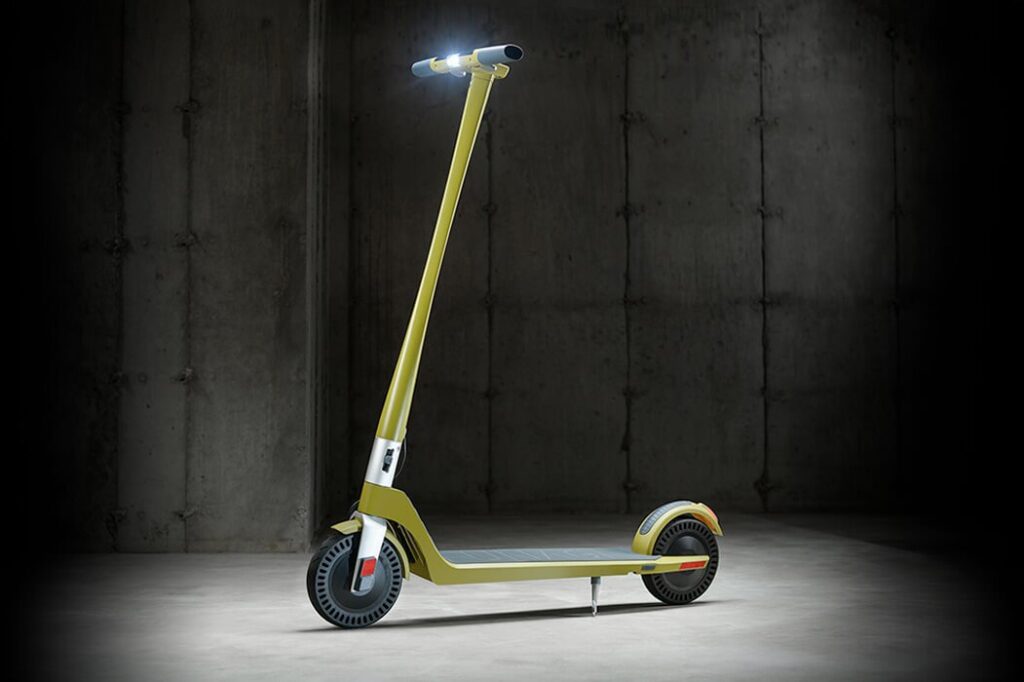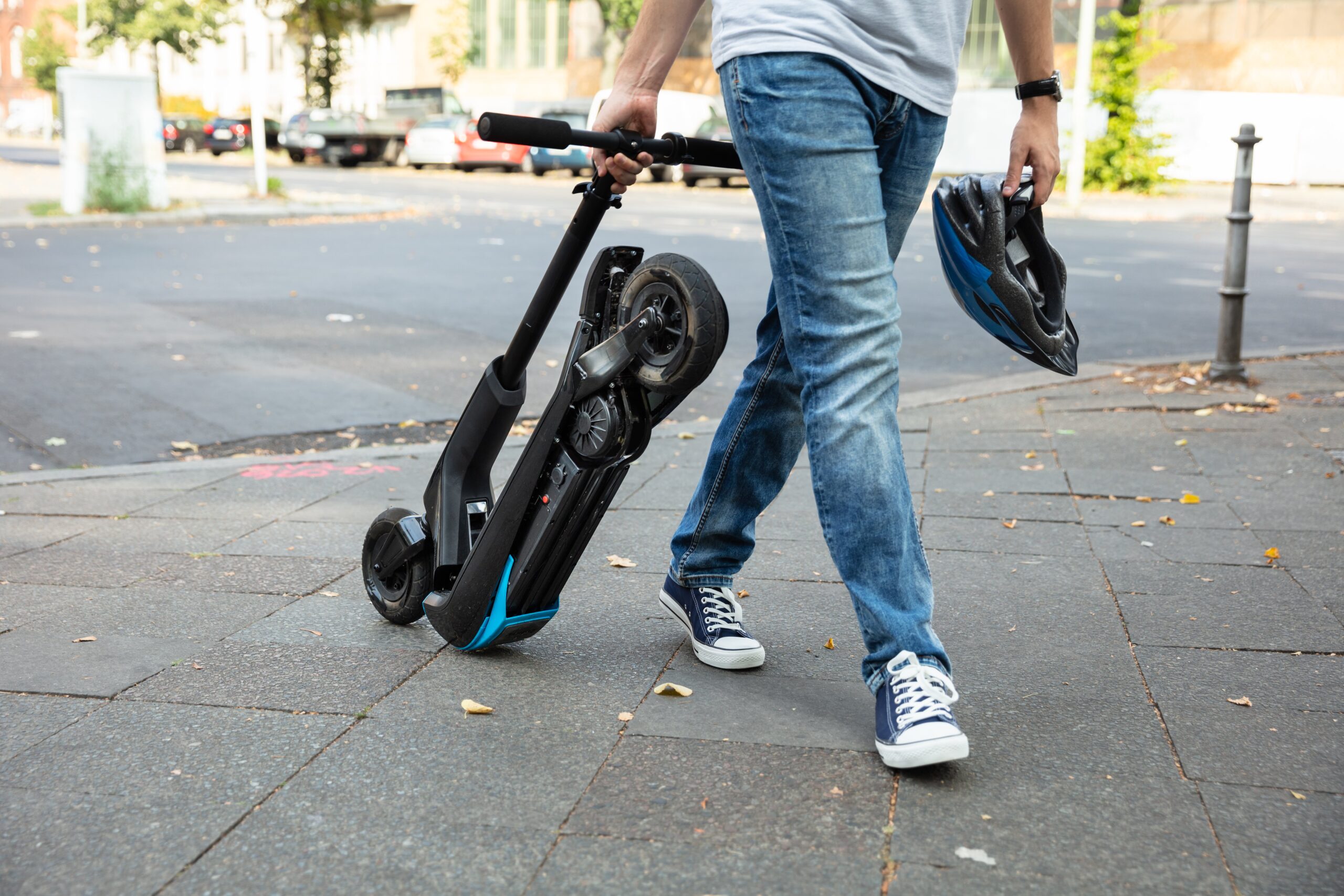Are you curious about the weight of electric scooters? Well, you’ve come to the right place! In this article, we’ll be exploring the typical weight of electric scooters. Whether you’re thinking of purchasing one or just want to satisfy your curiosity, we’ll provide you with all the relevant information. So, get ready to discover the weighty details of electric scooters!
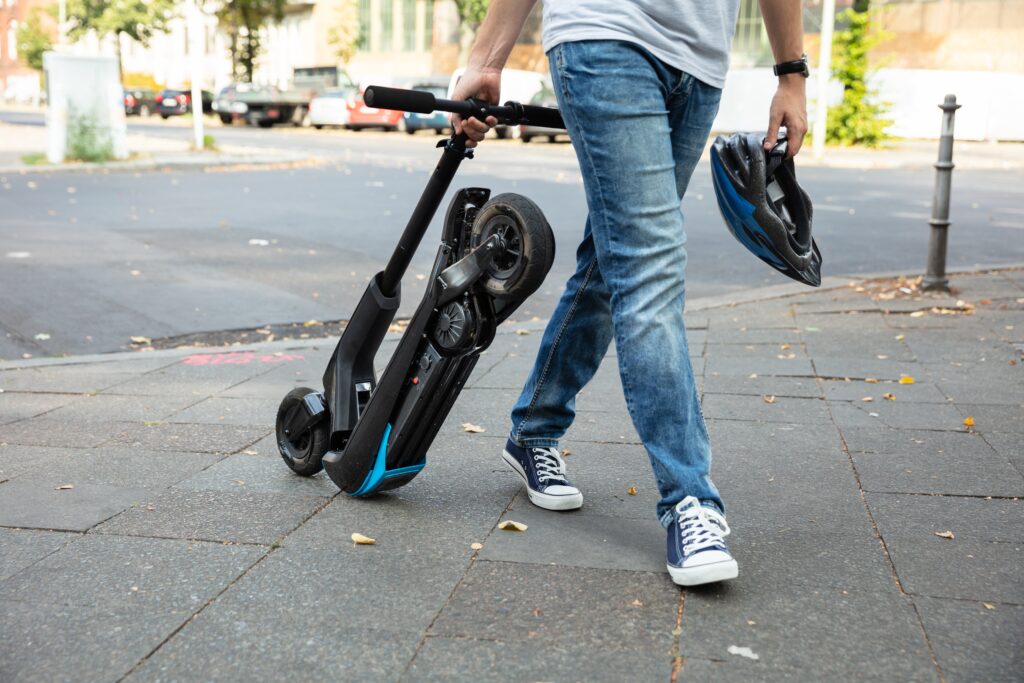
Overview
Electric scooters have gained significant popularity in recent years as a convenient and eco-friendly mode of transportation. When considering the purchase of an electric scooter, one of the key factors to consider is its weight. The weight of an electric scooter can affect various aspects of its performance, stability, and portability. In this comprehensive article, we will explore the factors that affect electric scooter weight, the different weight ranges of electric scooters, the benefits of lightweight electric scooters, considerations for heavyweight electric scooters, popular models in each weight category, and tips for choosing the right weight for your needs.
Factors Affecting Electric Scooter Weight
Battery Capacity
The battery capacity of an electric scooter plays a crucial role in determining its overall weight. Electric scooters that feature larger battery capacities tend to be heavier due to the increased size and weight of the batteries. It’s important to note that higher battery capacity often translates to longer riding range, so there is a trade-off between range and weight when considering battery capacity.
Motor Size
The size and power of the electric motor in a scooter can significantly impact its weight. Scooters with larger motors usually have more power and are capable of reaching higher speeds, but they tend to be heavier as well. Conversely, scooters with smaller motors are generally lighter but may have limitations in terms of speed and uphill performance.
Frame Material
The choice of frame material can greatly influence the weight of an electric scooter. Common materials used in electric scooter frames include aluminum and steel. Aluminum frames are lightweight yet sturdy, making them a popular choice for lightweight scooters. On the other hand, steel frames are heavier but offer enhanced durability and stability, which is often preferred in heavyweight scooters.
Additional Features
The inclusion of additional features, such as built-in lights, suspension systems, or larger wheels, can add to the weight of an electric scooter. While these features can enhance the overall riding experience, they also contribute to the scooter’s weight. It’s essential to consider the trade-off between added features and weight when choosing an electric scooter.
Tire Type
The type of tires used in an electric scooter can have a significant impact on its weight. Pneumatic (air-filled) tires tend to be lighter compared to solid rubber tires, which add more weight to the scooter. However, solid rubber tires are puncture-resistant and require less maintenance, which may be preferable for some riders.
Suspension System
Electric scooters with suspension systems provide a smoother and more comfortable ride, especially on uneven surfaces. However, the inclusion of a suspension system can add weight to the scooter. Electric scooters with front and rear suspension are generally heavier compared to those without any suspension system.
Electric Scooter Weight Ranges
Electric scooters are available in different weight ranges, each catering to specific needs and preferences. Let’s explore the three main weight categories of electric scooters:
Lightweight Scooters
Lightweight electric scooters typically weigh between 20 and 30 pounds (9-14 kg). These scooters are designed with portability in mind, making them ideal for individuals who frequently need to carry their scooters or navigate through crowded spaces. Lightweight scooters are often favored by commuters and travelers due to their ease of portability.
Mid-weight Scooters
Mid-weight electric scooters generally range between 30 and 40 pounds (14-18 kg). These scooters strike a balance between portability and enhanced features. They offer more stability and durability compared to lightweight scooters while still being relatively easy to carry or transport if needed. Mid-weight scooters are a popular choice for urban riders who value versatility.
Heavyweight Scooters
Heavyweight electric scooters, also known as performance scooters, typically weigh over 40 pounds (18 kg). These scooters are built for durability, comfort, and enhanced performance. Heavyweight scooters are designed to handle rougher terrains, offer increased speed, and have higher weight capacities. They are suitable for riders who prioritize stability and advanced features.
Benefits of Lightweight Electric Scooters
Portability
One of the main advantages of lightweight electric scooters is their portability. Their low weight makes them easy to carry and transport, whether it’s on public transportation, in crowded areas, or up a flight of stairs. Commuters and travelers can conveniently fold and store lightweight scooters without much effort.
Ease of Maneuverability
Lightweight electric scooters are agile and easy to maneuver, allowing riders to navigate through traffic or congested areas with ease. Their compact size and lightweight design make it effortless to make quick turns, change directions, and squeeze through tight spots. This maneuverability makes lightweight scooters suitable for urban commuting and short-distance travel.
Energy Efficiency
The lightweight nature of these scooters contributes to their energy efficiency. With less weight to carry, the electric motor can operate more efficiently, resulting in longer battery life and increased riding range. Lightweight electric scooters are an excellent choice for riders looking to maximize their scooters’ mileage on a single charge.
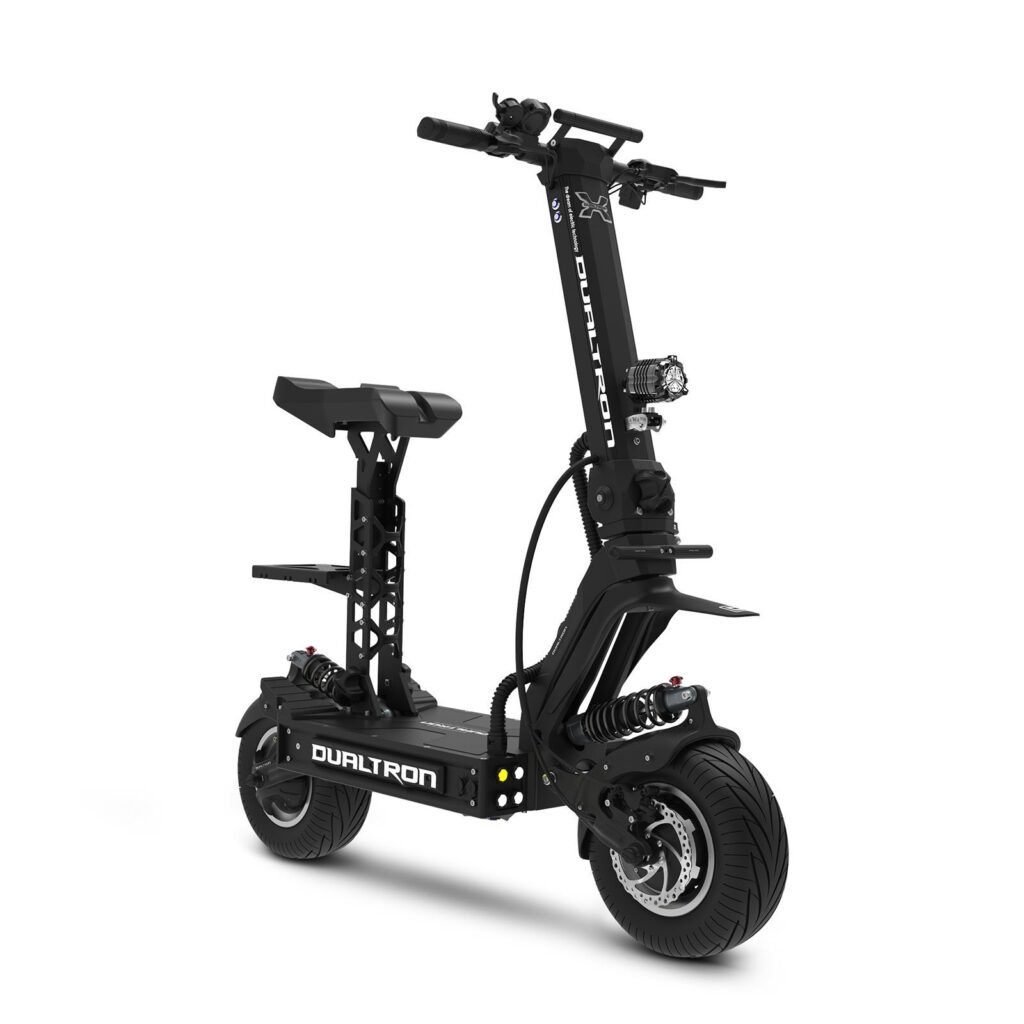
Considerations for Heavyweight Electric Scooters
Stability
Heavyweight electric scooters offer enhanced stability, making them suitable for riders who prioritize a secure and confident riding experience. The additional weight provides better balance, allowing riders to tackle uneven terrains, potholes, and bumps without compromising their stability. Heavyweight scooters are often equipped with larger wheels and suspension systems to further improve stability.
Enhanced Performance
The weight of heavyweight electric scooters contributes to their enhanced performance capabilities. These scooters often feature more powerful motors, allowing for higher top speeds and improved acceleration. Additionally, their heavyweight design enables them to handle inclines and rougher terrains with ease, providing a more comfortable and enjoyable ride.
Carrying Capacity
One of the major advantages of heavyweight electric scooters is their higher weight capacity. These scooters can accommodate larger riders or riders carrying additional items such as backpacks or groceries. If you require a scooter with a higher carrying capacity, a heavyweight electric scooter may be the ideal choice.
Popular Lightweight Electric Scooters
Here are some popular lightweight electric scooters that have gained recognition for their portability and performance:
-
Model 1: This lightweight electric scooter weighs just 22 pounds (10 kg) and offers a range of up to 15 miles (24 km) on a single charge. It features a compact design, adjustable handlebars, and a quick-folding mechanism, making it easy to carry and store.
-
Model 2: With a weight of 26 pounds (12 kg), this lightweight electric scooter is equipped with a powerful motor that allows for a top speed of 18 mph (29 km/h). It offers a range of 20 miles (32 km) and features a foldable design for easy transportation.
-
Model 3: Weighing in at only 24 pounds (11 kg), this lightweight electric scooter boasts a sleek and minimalist design. It offers a range of 12 miles (19 km) and is equipped with shock-absorbing tires for a smooth and comfortable ride.
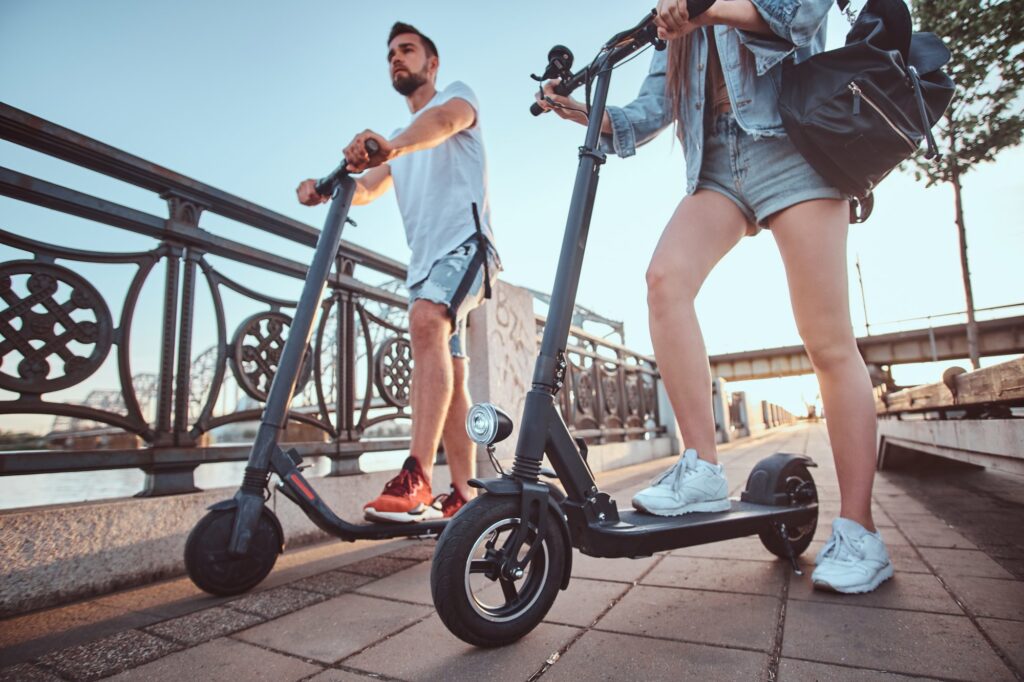
Popular Mid-weight Electric Scooters
Here are a few popular mid-weight electric scooters known for their balance between features and portability:
-
Model 4: This mid-weight electric scooter weighs 32 pounds (15 kg) and offers a range of 25 miles (40 km). Its sturdy frame and dual suspension system provide a comfortable ride on various terrains, while its foldable design ensures easy storage and transport.
-
Model 5: Weighing 35 pounds (16 kg), this mid-weight electric scooter features a high-torque motor that allows for speeds up to 20 mph (32 km/h). It offers a maximum range of 18 miles (29 km) and boasts a durable construction suitable for urban commuting.
-
Model 6: With a weight of 38 pounds (17 kg), this mid-weight electric scooter offers a range of 30 miles (48 km). It features a robust frame, large pneumatic tires, and a powerful motor for an enjoyable and reliable riding experience.
Popular Heavyweight Electric Scooters
For those seeking heavyweight electric scooters with advanced features and top performance, here are a few popular models to consider:
-
Model 7: Weighing 45 pounds (20 kg), this heavyweight electric scooter features a powerful motor capable of reaching speeds up to 25 mph (40 km/h). It offers a maximum range of 35 miles (56 km) and boasts a robust build with front and rear suspension for enhanced stability and comfort.
-
Model 8: This heavyweight electric scooter weighs 50 pounds (23 kg) and boasts a range of 40 miles (64 km) on a single charge. It features a high-torque motor, oversized tires, and a dual-brake system for optimal performance and safety.
-
Model 9: With a weight of 55 pounds (25 kg), this heavyweight electric scooter offers a range of 50 miles (80 km). It is equipped with a powerful motor, shock-absorbing suspension, and a wide deck for a smooth and enjoyable ride, even on challenging terrains.
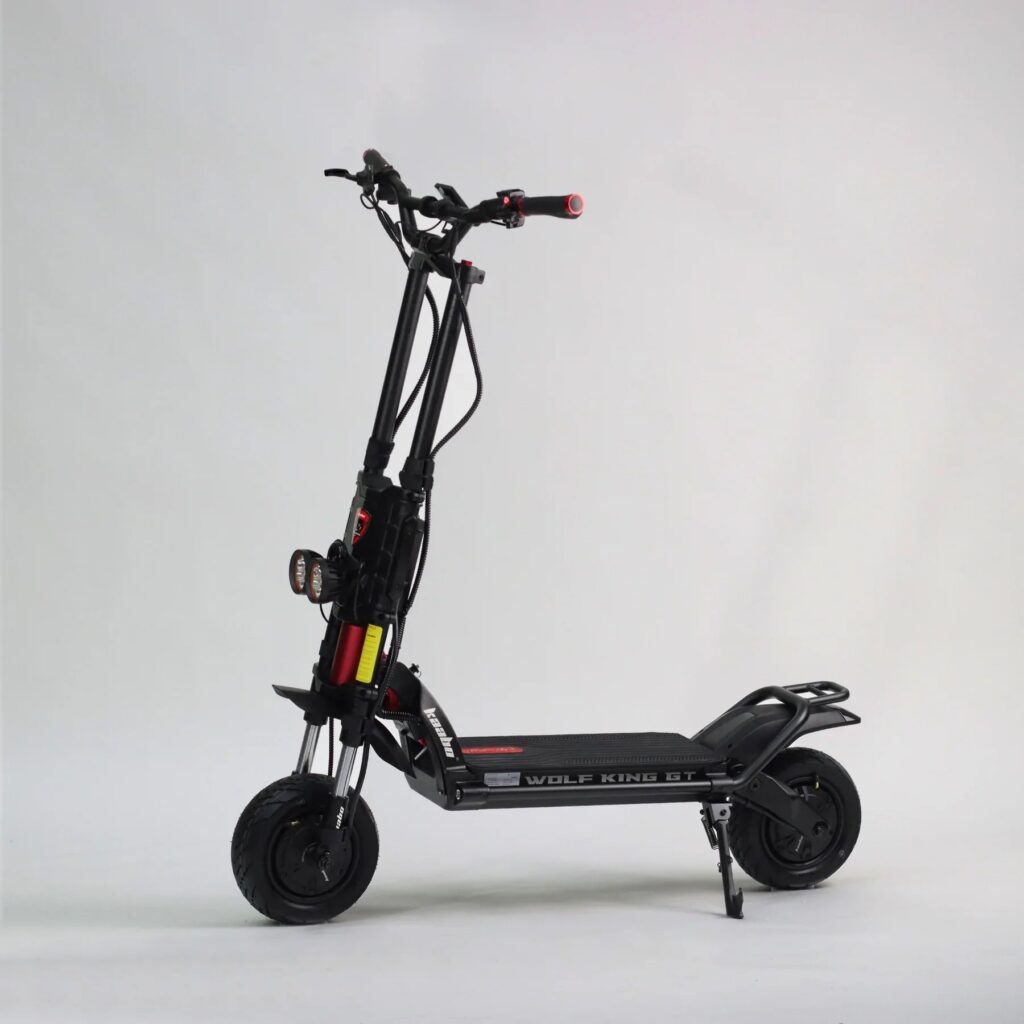
Tips for Choosing the Right Weight
Intended Use and Frequency
Consider how you plan to use the electric scooter and how frequently you will be using it. If you need to carry the scooter often or navigate through crowded areas, a lightweight scooter may be the most suitable choice. However, if you primarily ride on open roads or need a scooter for longer distances, a mid-weight or heavyweight scooter with enhanced features may be preferable.
User Strength and Size
Take into account your own strength and size when choosing the weight of an electric scooter. If you have difficulty lifting heavy objects or have limited physical strength, opting for a lightweight or mid-weight scooter would be more manageable. Additionally, ensure that the scooter’s weight capacity matches your own weight to ensure a comfortable and safe riding experience.
Transportation and Storage
Consider how you will transport and store the electric scooter when not in use. If you rely on public transportation or have limited storage space, a lightweight scooter that can be easily folded and carried would be the most convenient option. However, if you have ample storage space or have a dedicated area for parking the scooter, weight may not be as significant a factor.
Terrain and Environment
Evaluate the terrain and environment in which you plan to ride the electric scooter. If you frequently encounter uneven surfaces, potholes, or hilly terrains, opting for a mid-weight or heavyweight scooter with larger wheels and suspension systems would provide better stability and comfort. However, if you primarily ride on smooth roads or bike lanes, a lightweight scooter may suffice.
Conclusion
Electric scooters come in various weight ranges, each catering to different needs and preferences. Lightweight scooters offer portability, maneuverability, and energy efficiency, making them ideal for commuters and travelers. Mid-weight scooters strike a balance between portability and enhanced features, suitable for urban riders who value versatility. Heavyweight scooters provide stability, enhanced performance, and higher weight capacities, making them suitable for riders who prioritize comfort and advanced features. By considering factors such as intended use, user strength, transportation needs, and terrain, you can choose the right weight for your electric scooter and enjoy a safe and enjoyable riding experience.
